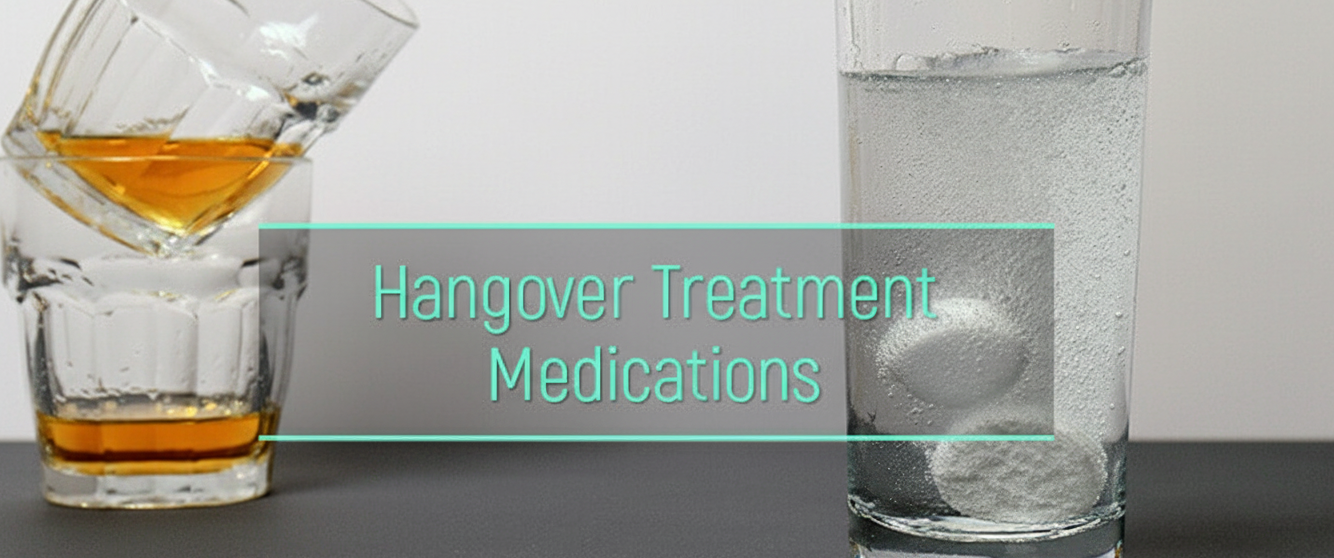Anyone who has experienced a hangover knows how miserable it feels. People who get them often are always looking for a quick fix. While there isn’t a universal “hangover cure pill”, certain medications can help ease specific symptoms — from headaches and nausea to dehydration.
What Are Hangover Pills?
Scientists still don’t fully agree on what causes hangovers, but many remedies have been tried. Most so-called cures don’t work beyond the placebo effect, yet some medications do help with certain symptoms, such as:
- NSAIDs for pain
- Antacids for stomach upset
- Electrolyte drinks for dehydration
Hangover pills are designed to combine several of these effects into one dose, making them more convenient than taking multiple medications. Early versions were simple (like activated charcoal plus antacids), but modern hangover pills often contain combinations of vitamins, minerals, pain relievers, and stomach-settling ingredients.
However, no pill cures all hangover symptoms, and effectiveness depends on the person, the alcohol consumed, and the timing.
Do Hangover Pills Work?
The short answer: sometimes.
- Because most are sold as over-the-counter supplements, hangover pills haven’t undergone rigorous scientific testing.
- Some users swear by them, while others say they don’t work at all.
- Many are most effective when taken before or during drinking, which limits their usefulness for people who don’t plan ahead.
- More often than not, they just take the edge off symptoms rather than eliminating them completely.
Common Hangover Remedies
NSAIDs for Headaches and Pain
Hangovers often bring headaches, sore muscles, and general body aches. Over-the-counter pain relievers can help:
- Aspirin (Bayer, Excedrin)
- Ibuprofen (Advil, Motrin)
- Naproxen (Aleve)
⚠️ While safer than some alternatives, these drugs may irritate the stomach or increase the risk of bleeding.
Activated Charcoal
Popular but not effective once alcohol has been absorbed into the bloodstream. It may work as prevention (taken before drinking), but not as a cure.
Electrolyte Drinks (Pedialyte, Oralyte, Gatorade)
Because alcohol dehydrates the body, replenishing fluids and electrolytes can help reduce symptoms like fatigue, dizziness, and headache.
Emergen-C and Vitamin Boosters
Some people believe boosting the immune system helps, but evidence shows it’s only useful before drinking, not after symptoms set in.
Pepto-Bismol
Soothes nausea, acid reflux, and diarrhea — great for gastrointestinal hangover symptoms.
BC Powder
Aspirin plus caffeine in powdered form, works quickly but may be hard to keep down if nausea is severe.
Alka-Seltzer / Alka-Seltzer Morning Relief
Contains aspirin and baking soda to ease stomach upset and pain. Works for some, but ingredients like citric acid can irritate the stomach.
Zantac 75
Helps neutralize stomach acid and reduce nausea. Safe after drinking, but not while drinking — as it can increase blood alcohol levels.
The Dangers of Acetaminophen (Tylenol)
One medication you should never use for a hangover is acetaminophen (Tylenol).
- Both alcohol and acetaminophen are metabolized by the liver.
- When taken together, they create toxic byproducts that can cause severe liver damage.
- Even a small dose after heavy drinking is dangerous.
- Some studies also link the combo to kidney damage.
Getting Help for Alcohol Misuse
The best way to avoid hangovers is to avoid excessive drinking. If hangovers are frequent, it may signal alcohol misuse or dependence. In this case, professional help is available, including:
- Outpatient or residential rehab programs
- Behavioral therapy
- Holistic and medical treatment options
No pill can replace addressing the root cause. Long-term health and well-being come from reducing alcohol consumption or seeking treatment for alcohol use disorder.
